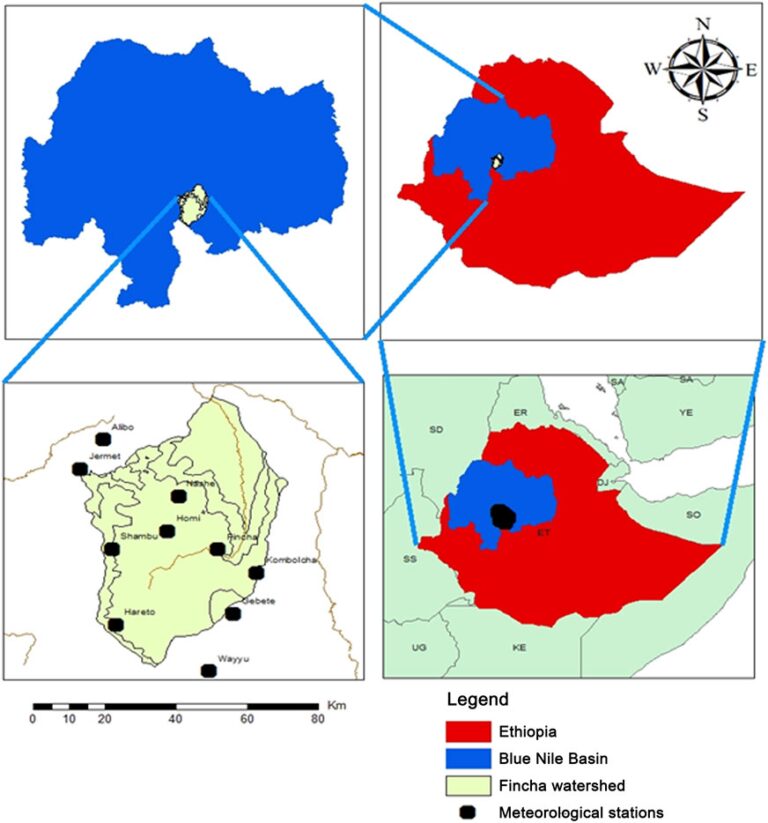The article addresses soil erosion and sediment yield in the Fincha watershed in Ethiopia, where land-use changes significantly contribute to these issues. Globally, about 75 billion tons of soil are lost annually, with certain developing nations experiencing rates as high as 20-40 tons per hectare per year. In Ethiopia, poor land management practices have led to substantial sedimentation in water bodies, particularly affecting hydroelectric power generation and irrigation.
Using the Soil and Water Assessment Tool (SWAT), the study examines historical (1989, 2004, 2019) and future (2030, 2040, 2050) land-use scenarios and their impacts on sediment yield. The findings reveal that average annual soil loss is expected to rise from 32.51 tons per hectare in 1989 to 53.98 tons per hectare by 2050. Sediment entering the Fincha reservoir could increase from 1.44 million tons in 1989 to 3.42 million tons by 2050, which poses risks for the reservoir’s longevity and efficiency.
Sensitivity analyses identified key parameters affecting stream flow and sediment processes. The study highlights socio-economic implications, emphasizing the need for targeted management strategies to mitigate soil erosion and enhance sustainable land use, given the region’s reliance on agricultural and hydropower resources. The imperative for further research and data collection to improve predictions in data-scarce regions is also underscored. The article, while providing substantial insights into soil erosion dynamics, calls for more comprehensive understanding and management strategies to protect the region’s environmental and socio-economic future.


